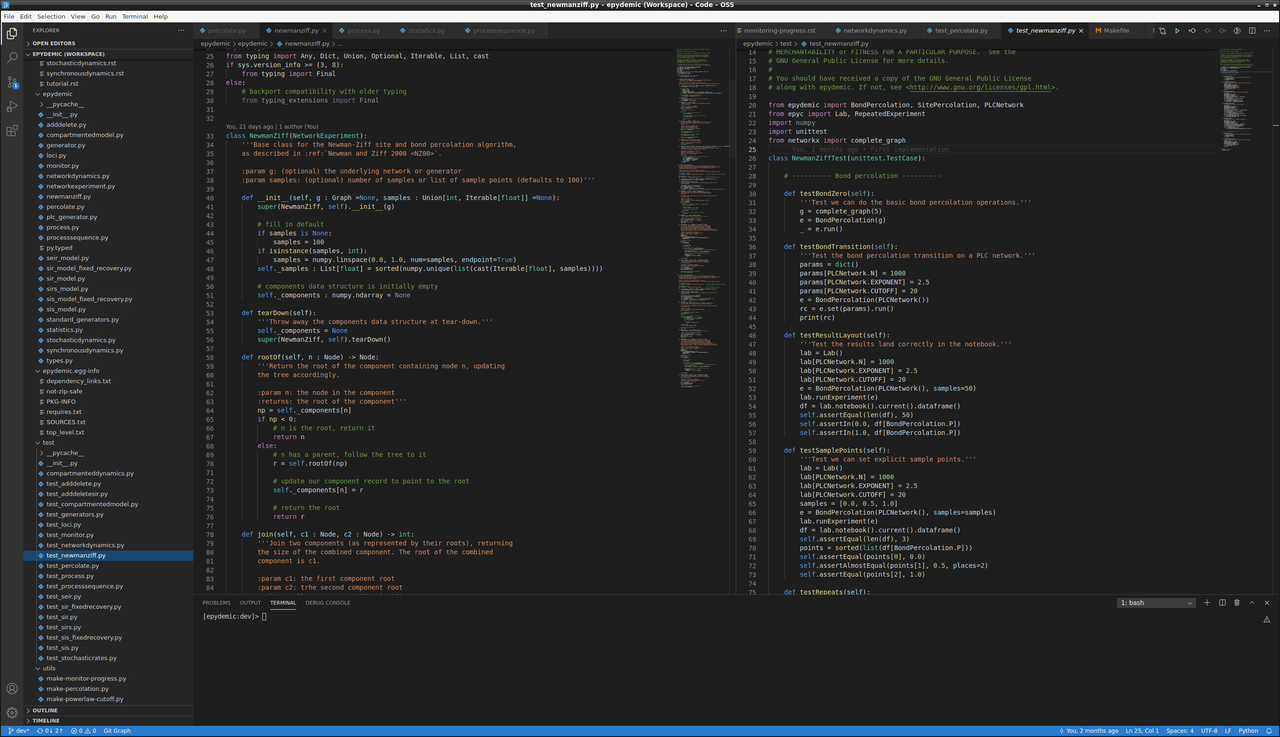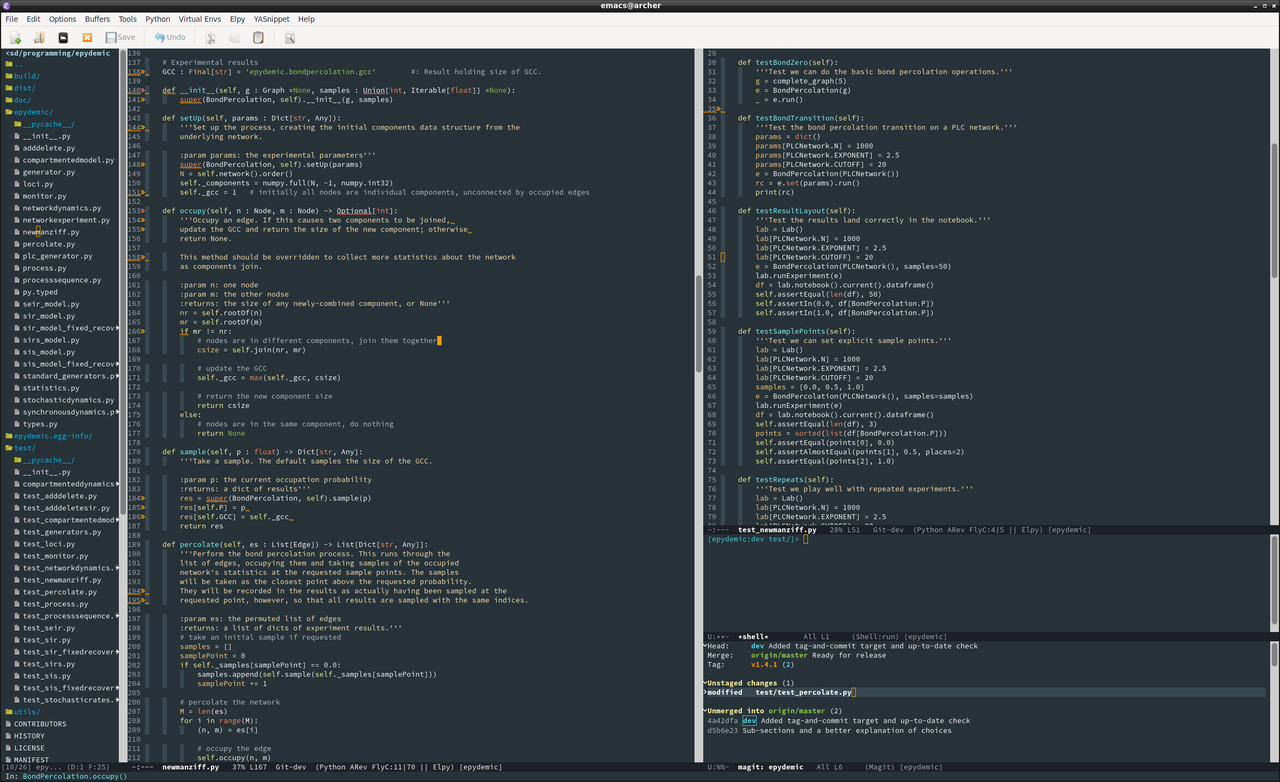I recently tried out a new development environment for my Python
development, and noticed an unexpected convergence in the designs of
the two tools.
I’ve been a long-time Emacs user. I periodically
get a desire to try something new, something less old-school, just to
see whether there are advantages. There always are advantages, of
course — but often significant disadvantages as well, which often
keep me coming back to my comfort zone.
My most recent excursion was to try Microsoft’s VS
Code.

This is handily cross-platform, being built in Javascript on top of
Electron. It’s got a lot of nice
features: a tree view of the project in the left-hand pane, syntax
colouring, code style linting, integrated debugging and unit test
running, integrated connection to git, and so on. Looking a little
closer there are all sorts of status markers around the code and in
the ribbons at the bottom of panes and the window overall to show
status that might be important.
But it’s so slow. That’s a feature of VS Code, not of Electron (as I
first suspected), because other Electron-based editors like
Atom aren’t as slow. And my development box isn’t
the latest, but it also isn’t that old.
So I reverted to Emacs, but upgraded it a little to more modern
standards. Specifically, I installed the
elpy Python IDE,
with assorted other packages suggested by various sites. The result is this:

Now for anyone who’s used Emacs for a while, it’s definitely still
Emacs — not least with the convoluted keystrokes and infinite
customisation you either love or hate. But it’s striking how similar
the two IDEs now are, and striking how VS Code has inherited some
ideas from Emacs: resizeable panes, modelines in the ribbon, markers
in pane gutters, and so forth — things that Emacs-based applications
have had for years, which have now migrated into “the mainstream”.
Both the feature sets and the visuals of the two systems are very
similar indeed. Both are entirely cross-platform and extensible. For
VS Code you write extensions in Javascript; for Emacs you write them
in Lisp; and that’s about it. And Emacs is a lot faster on my
set-up. There are some limitations — I’ve yet to get the hang of using pdb as a debugger, for example, especially for modules
and from within tests — but the functionality is really quite comparable.
I think it’s safe to say there’s been cross-fertilisation between VS
Code (and other IDEs) and Emacs over the years. A lot of the
developers of the former quite possibly used the latter. But I
strongly suspect that most of the traffic has gone from Emacs to
the other systems: the similarities are just too great to be
accidental. It’s interesting to think that a system that emerged at
the dawn of the free-software movement has had — and is still having
— such an influence on modern development tools. And I’m happily back
in my comfort zone.





